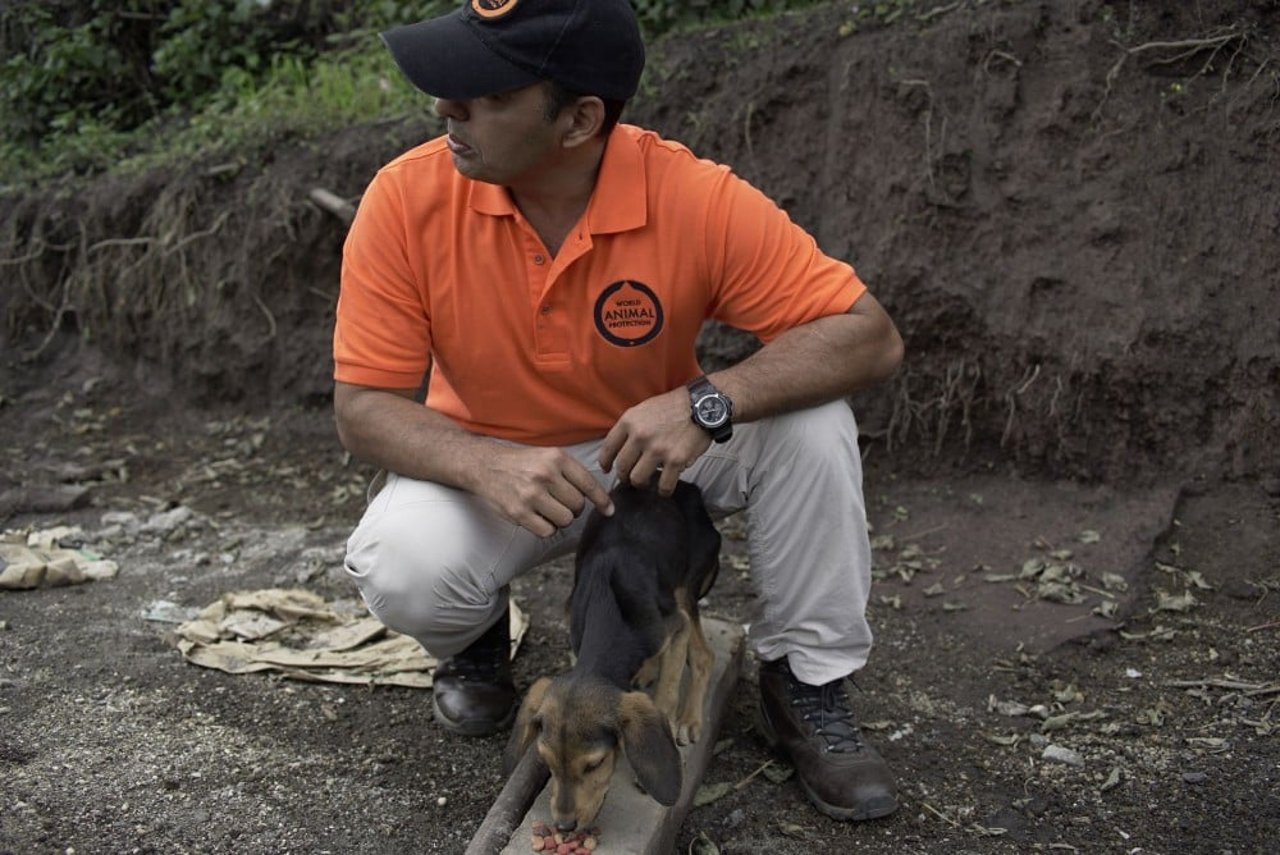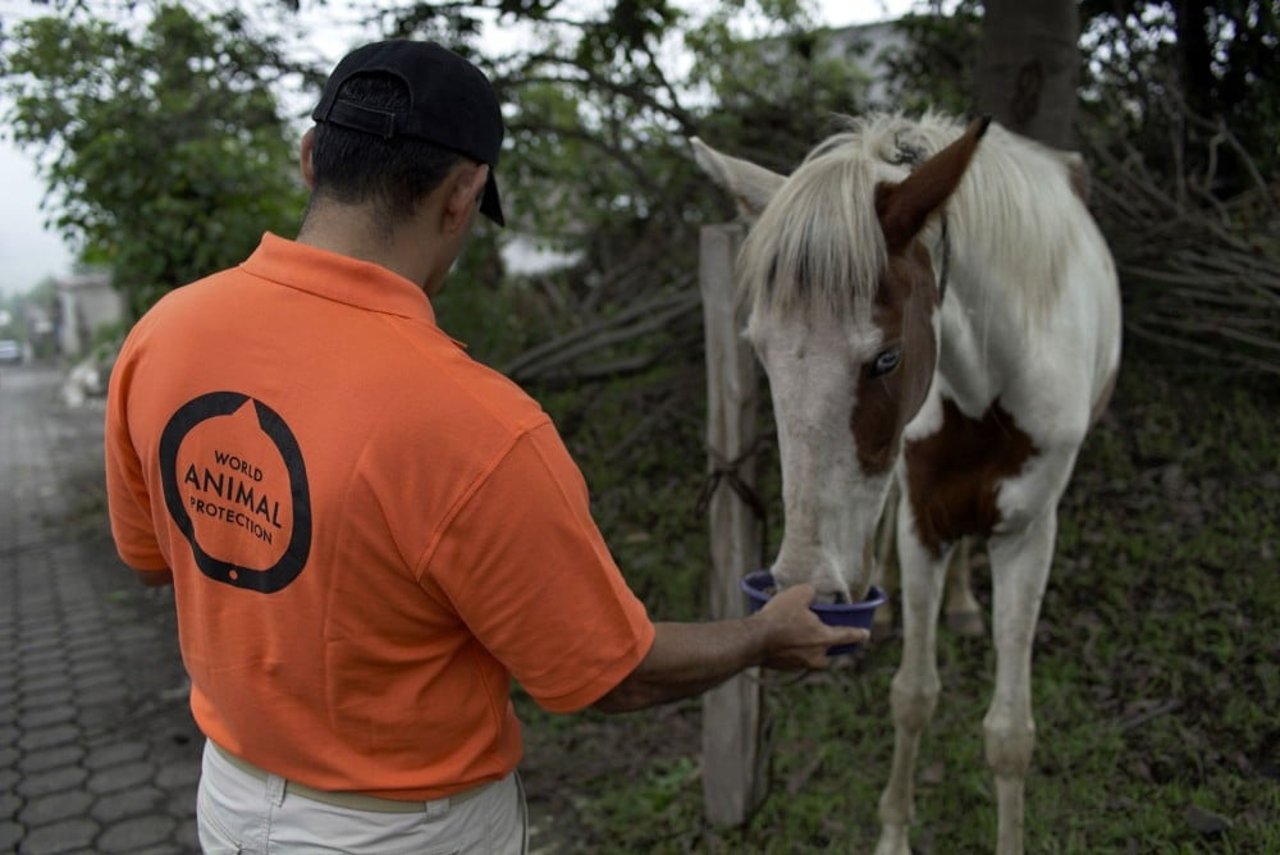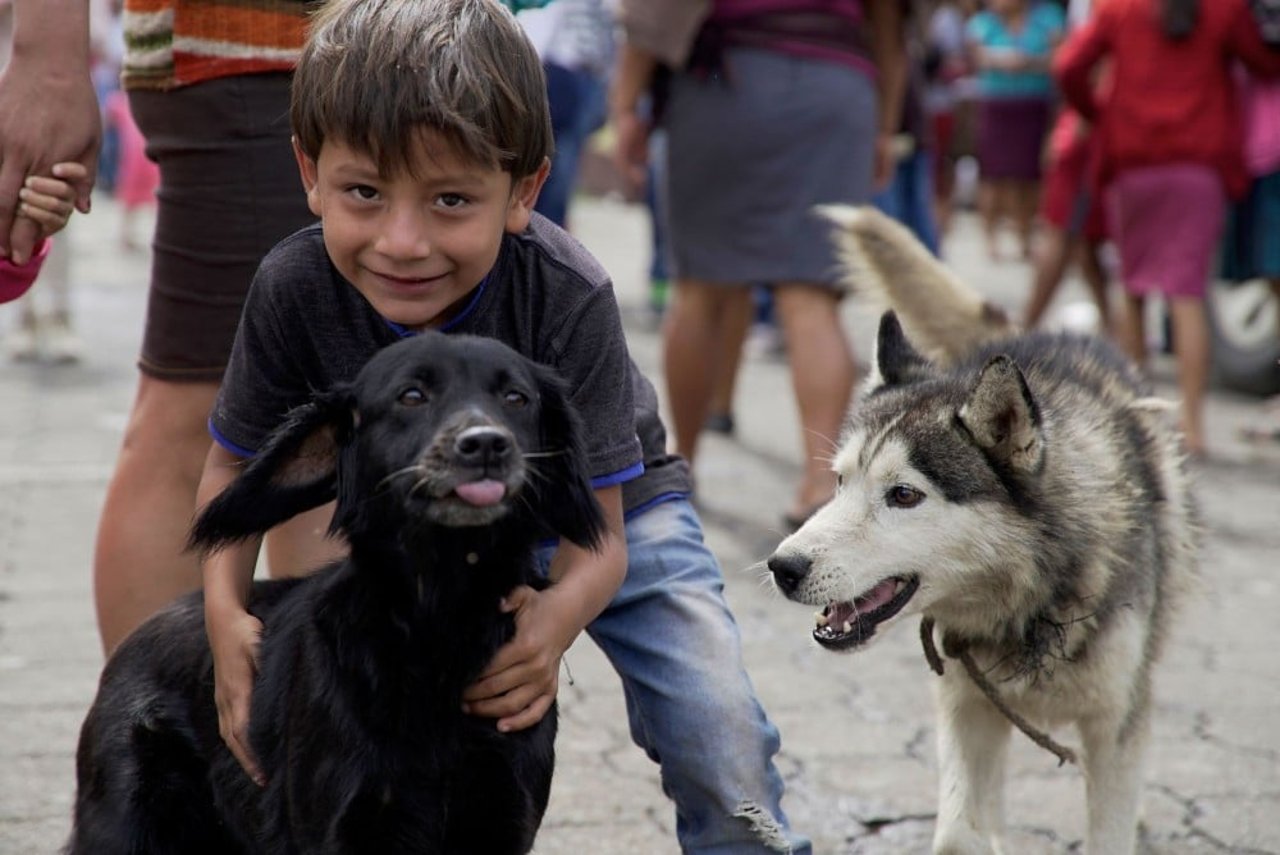
Helping a tiny puppy and saving horses from grazing on poison – read about the animals we've aided after the devastating eruption of Volcán de Fuego (Volcano of Fire) on June 3 near Guatemala City.
At least 12,000 people are currently in shelters following the eruption, and villages around the volcano remain inaccessible.
Many pets and farm animals have had to fend for themselves. Drinking standing water or eating contaminated food has caused many to die a fast death.
With ash covering everything in sight, our teams have been protecting animals on the ground and working with the government to ensure affected communities continue to receive aid. So far, we have helped 18,371 animals – here are some of their stories.
Yoga, the puppy who defied the odds
Photo: World Animal Protection / Carlos Vega
One local woman, Claudia, learned firsthand the tragic effects of the ash – three of her dogs died on the same horrible day, after drinking ash-filled pond water.
Only a five-month-old puppy, Yoga, managed to survive.
We were on the scene to care for Yoga and equip Claudia to help him heal.
Claudia and her family are farmers who rely on their chickens for income and stability. We gave them food, clean water and minerals to help them recover.
Helping horses like Reina
Photo: World Animal Protection / Carlos Vega
With all the plants covered by poisonous ash, grazing as normal is life-threatening for horses like Reina.
We are providing local people with feed that will give their animals the nutrition they need, and advising them about the importance of washing the ash off the greens their animals are feeding from.
Saul's dogs are doing well after the disaster
Photo: World Animal Protection / Carlos Vega
Saul, a young boy, visited the local plaza with his family and their dogs Soso and Toshca for food and medication.
Luckily, Saul's family found stability amidst the crisis for themselves and their pets.
Our teams have found many stray and community dogs without owners. Some may be pets separated from their owners. We're helping them with food and aid.
Our team is also advising local families on how to care for their animals in the volcano’s aftermath, making sure to give them food and water only from clean containers.
Moving forward
In partnership with the government and local disaster liaison officers, we are also assessing local animals' long-term needs so they continue to receive support when our work is finished.
It's often difficult to predict when disasters will strike. Thanks to our supporters’ generous donations, we’re able act quickly to protect the animals who need us most.
It's often difficult to predict when disasters will strike. Thanks to our supporters’ generous donations, we’re able act quickly to protect the animals who need us most


